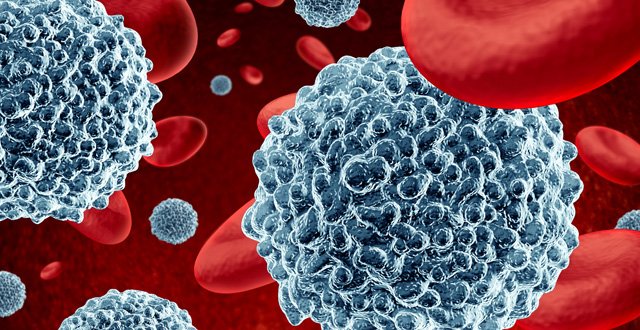
Making an accurate diagnosis is still one of the biggest challenges in treating the vasculitides,the 2019 ISR Spring Meeting heard.
Vasculitis
sees the inflammation of blood vessels and invasion of white blood cells,
accompanied by destruction of tissue, leading to necrosis and occlusion of blood
vessels, organ damage and increased premature mortality, particularly if
untreated. The complex range of overlapping diseases encompasses small, medium,
and large vessel vasculitis.
Speaker
Prof Raashid Luqmani, Professor of Rheumatology, University of Oxford, UK, a
long established clinician and expert researcher in the vasculitis field, gave
a comprehensive update on developments in diagnosing and treating the
vasculitides.
Prof
Luqmani noted that some of the more modern imaging technologies like PET scans
“are revealing areas of vasculitis in the larger blood vessels in patients that
might have giant cell arthritis (GCA) or who are systemically unwell with high
CRP of unknown origin… so we see it in multi systems, multi organs so it can be
a bit confusing. The picture in vasculitis is anything can happen at any time
in any part of the body. Though it is probably not quite like that. You do get
a grouping of large vessel involvement predominantly…”.
He
said cases of GCA are now presenting as commonly as rheumatoid arthritis in the
UK, yet vasculitis remains “a rather neglected disease”.
The
lack of definitive diagnostic and classification criteria for vasculitis is
problematic, with work ongoing on new draft classifications. Imaging
(ultrasound) is also being increasingly used in conjunction with biopsies to
give a more accurate diagnostic picture, in GCA particularly, Prof Luqmani
said.
If GPs
see a patient with suspected GCA the professor said they should get in contact
with a hospital rheumatology colleague first if they are going to start the
patient on steroids. “Because as soon as you start steroids the clock is
ticking and your likelihood of getting a positive diagnostic test is
diminishing. If you don’t have a fast track system in your area, you should be
asking for one, ” he told the MI.
When
treated adequately, the vast majority of vasculitis patients have good
five-year survival rates. However, smaller vessel vasculitis has higher
mortality rates, and in large vessel vasculitis, while mortality is low,
morbidity is high. In GCA, visual loss/blindness is a risk, while in Takayasu
arteritis; ischemic claudication of limbs and great vessels can require
surgical reconstruction. Sepsis and infection are key risk factors for
premature mortality in vasculitis patients, he reported.
Current
therapies aim to minimise systemic and local inflammation and preserve organ
function. Immunosuppressive agents are combined with supportive management,
such as compensating for organ dysfunction (eg, treating hypertension or
providing dialysis); dealing with or preventing comorbidity which might arise
from treatment (eg, infection, steroid related osteoporosis, or cataracts);
worsening of pre-existing comorbidity (eg, worsening of ischaemic heart disease
or obesity); or development of a new comorbidity.
While
cyclophosphamide was traditionally the main therapy for ANCA vasculitis, with
high risk of bladder cancer and infertility, now the dosages have been
decreased and much better tailored, with rituximab being given increasingly and
in combination in sicker patients, Prof Luqmani explained to MI. Recent studies are showing data that supports moving towards the
possibility of steroid-free regimens for ANCA vasculitis.
He
confirmed he has been working on new GCA guidelines for EULAR: For a standard
diagnosis of GCA, he recommended starting with a standard taper of steroids,
getting down to a low dose but if the patient is experiencing adverse effects
to move on to disease-modifying agents like methotrexate or tocilizumab (which
has restricted use guidelines in UK) to get them into remission. He advised
against using TNF inhibitors in refractory GCA, saying there was also limited
data to support the use of abatacept, with growing interest in the use of
ustekinumab and other IL-6 therapies.
For
treating ANCA vasculitis, EULAR released treatment guidelines in 2016, he
noted, with more updates likely to be needed soon given the latest data.
Prof
Luqmani again stressed the need to ensure that clinicians correctly identify
what they are actually treating so that they can tailor the choice of treatment
at the right dose and right time for each individual.
Regarding
long-term treatment of controlled vasculitis patients, data is less clear he
said, though 18-24 months seems to be the optimal time, from current data.
Concluding his talk, Prof Luqmani said: “So
things are moving forward. I do think there are a number of new developments in
vasculitis, and I think those new ways of understanding the mechanisms are
giving us an approach that is mechanism-based rather than just a blunderbuss
immunosuppressive therapy. But I think we need to be careful to evaluate these
patients so we can get the best from these therapies and better markers would
be nice… we need to make the most of what we do have, which is largely based
on asking sensible questions.”





Leave a Reply
You must be logged in to post a comment.